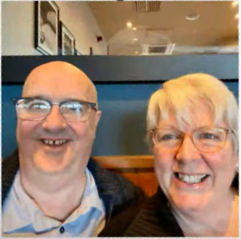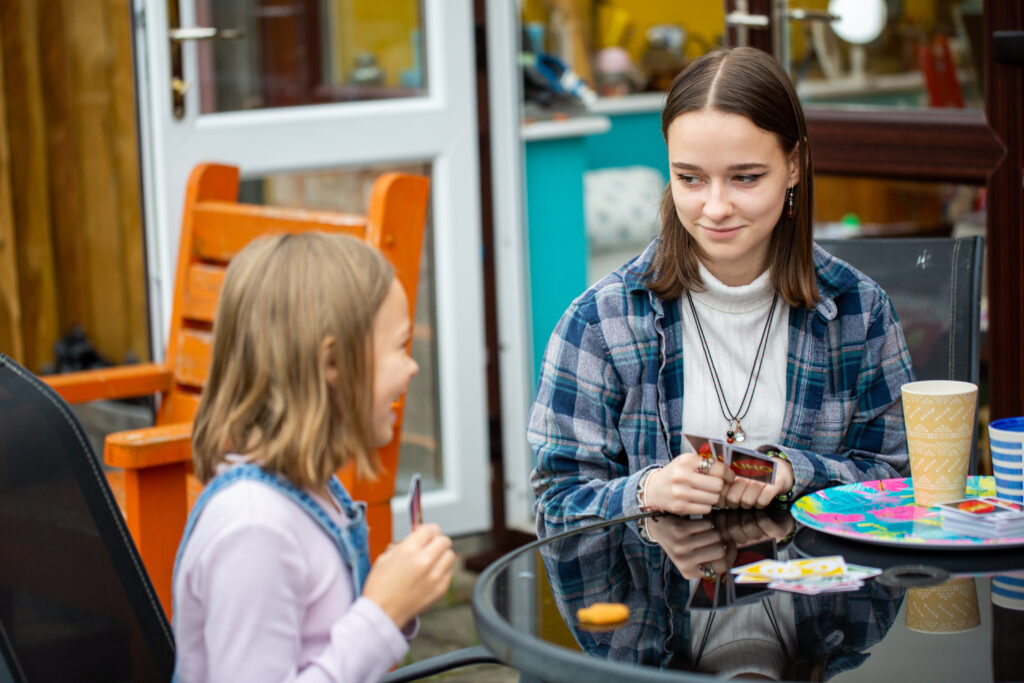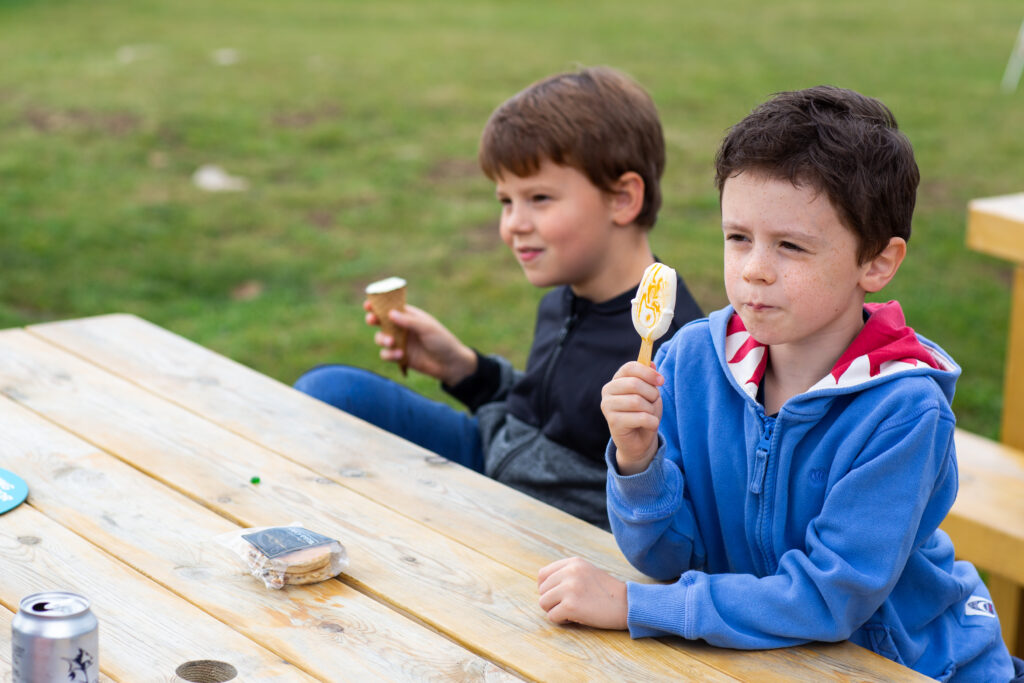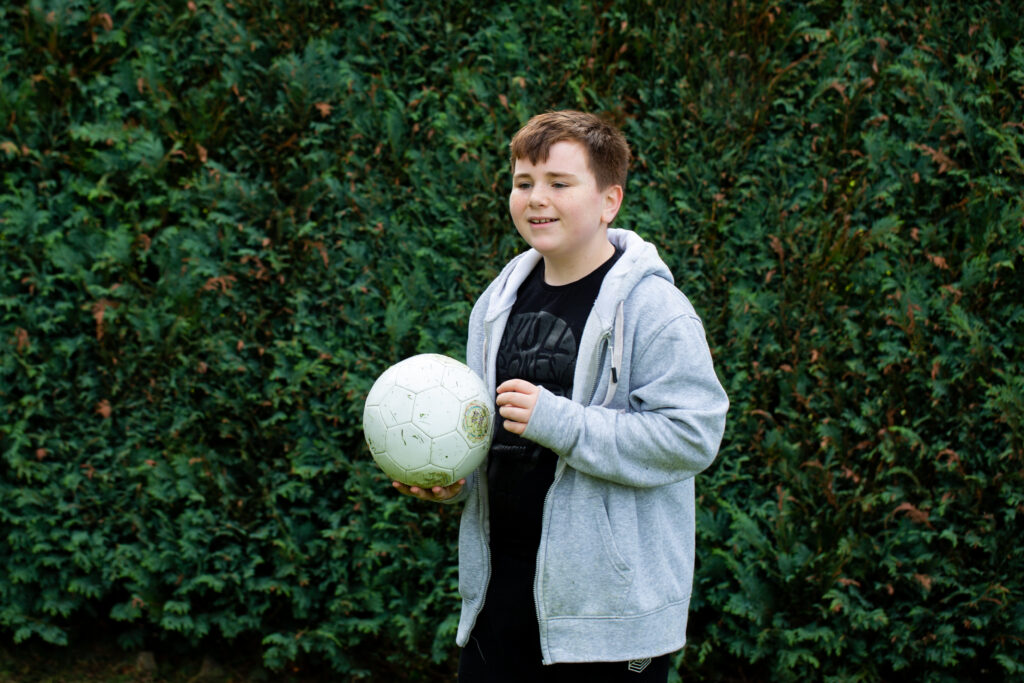
What is ‘Empty Nest’ Syndrome?
‘Empty nest’ syndrome refers to the feelings of loneliness, a loss of purpose as a parent or searching for fulfilment after children move out of the home – or ‘fly the nest’.
Parents who feel this way, and have more care to give, may already possess many of the qualities it takes to become a foster carer.
Ian and Lynda sat down with local DJ Lee Jukes to discuss how they first started their fostering journey once Lynda’s children had grown up. They share how they avoided ’empty nest’ syndrome, and the realities and rewards of fostering.

How long have you been fostering?
“Nearly 10 years now. It’s the best job in the world. Every day is different, and you’ve got a rough guess on what will happen tomorrow but who knows! The children give you challenges, they give you some great highs. They give you some lows as well but the highs generally outweigh the lows.”
What made you want to start fostering?
“Well, my children had grown up, Ian and I were just starting our new relationship and his job moved him down to Wales. I moved down as well, therefore I was out of work. I had nobody to look after except Ian, and I love looking after people! I’d cared for my parents, I’d cared for my children. It’s not who I am, but it is what I feel I’m best at.
Fostering just made sense to me.”

Why did you choose the route to foster with your local authority?
“I saw an advert to go along and see what it was all about, so I went along.
It just worked for us – everyone was really helpful and informative. For us it was quite a long process, because it was nearly 10 years ago, but the process has been tuned up now, so it doesn’t take as long.”
How would you describe being a foster carer to anyone that might be interested?
“You’ve got to think on your feet. You’ve got to be imaginative in the way you deal with stuff. Creative.
It does keep you young, and you cannot deal with the children in the same way that you parent your birth children. It’s totally different. These children have seen and experienced things that nobody, not even adults, should ever experience. So you’ve got to be able to think outside the box.
The young people like boundaries…well they don’t like them, but they need them! They need to feel comfortable and safe, and that’s part of what it’s all about, getting these young people to feel safe. The hardest thing is for you to gain their trust as they’ve had a lot of adults generally let them down. So to come to a place where we’re complete strangers when they walk through the door with their social worker, we’ve got to work to gain their trust.”
Would you say that it keeps you both feeling young?
“Oh, absolutely! You can’t just think one step ahead, you’ve got to think about ten steps ahead.
With all the training that the local authority do, you’re learning all the time. With modern technology, internet, smart phones, with that side of things, you’ve got to stay ahead of it.”

How many children have you fostered since you became foster carers?
“We have opted for long-term children, so about 10 or 15. We haven’t had loads, we’ve had complex children that have been with us for 3, 4, 5 years.”
Does that make you feel proud? Do you get a sense of satisfaction from doing what you do?
“Yeah, I get a great sense of satisfaction. Yes it’s hard, it can be full-on because it’s 24/7, 365 days a year. You know, a teething baby at 2 o’clock in the morning, you don’t think ‘oh this is rewarding!’”
So do you keep in contact with previous children you have fostered?
“We’ve bought a caravan so we’ve been up to the other side of Swansea where two of the young people we fostered are living with their adoptive family. That was a bigger learning curve than the children – having a caravan!
We had a fabulous day, reminiscing. It’s important for the young people as well, because the oldest one is now 7ish and she wanted questions answered like ‘what was the first word I said?’. Only we could answer that. It fills the blocks in for her that new mum and dad can’t do because they don’t know.”
What kind of support do you get from the local authority/your foster wales team?
“Our supervising social workers were and are outstanding. The department will offer support, especially if you’ve got a particular problem with a child. There’s somebody there that we can talk to.
There are five ‘liaison carers’ [experienced carers there to offer support to other carers], of which I am one of them. We look after about 20-25 other foster carers on an informal basis. So they can literally phone us 24/7.
Foster carers understand foster carers.”

What advice would you give to someone who is thinking ‘I’d like to do this but I’m not 100% sure’?
“Ask the question.
Speak to people that know. Speak to foster carers themselves. Speak to liaison carers.
You’ve got to think, it’s not a decision to be taken lightly.
What you do effects the lives of the children that you are looking after. It’s not just about you, it’s about them. What you can offer them, and what you feel you can do to get that person so that by the time they leave you, they’ve gained some really useful tools to get through life. That is what it’s about, and that’s what you’ve got to offer. It isn’t something you can just pick up and put down like a book. You’ve got to have that commitment all the time.
You can make a massive effect on the young persons life, and give them a second chance to become the best person they can be, and that’s what we’re all about. It’s giving that independence and giving them the opportunity literally to try stuff that if they’d have stayed where they were, they wouldn’t have that opportunity sadly.
So anybody experiencing empty nest syndrome and thinking about fostering, make the enquiry, ask the questions, and then ask to meet other foster carers.”
People who foster with us are offered full training, a financial allowance, extensive local support and access to other foster carers, including support groups.
If you’d like to hear the podcast in full, please visit www.youtube.com/watch?v=b9VpcIN3jtY
Get in touch with Foster Wales Bridgend
Send us a message and we will get back to you as soon as we can.
If you live in Wales, visit the Foster Wales website where you can find all the information and contact your local authority service.
